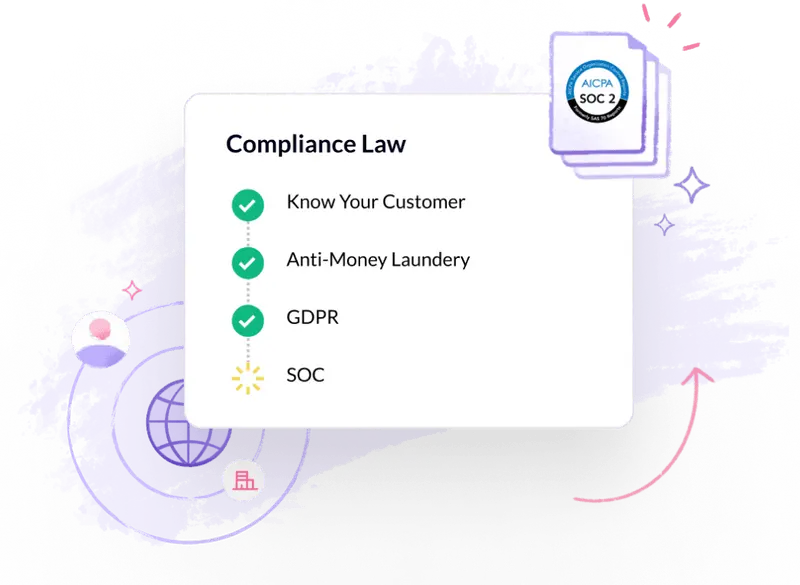What is FinCEN?
Financial Crimes Enforcement Network (FinCEN) is the primary agency within the United States Department of the Treasury responsible for combating financial crimes.
FinCEN focuses on preventing activities such as money laundering and financing of terrorism within the USA.
The Mission of FinCEN
FinCEN’s mission is to safeguard the financial system from organized crime and money laundering through various means. As a bureau of the United States Department of the Treasury, FinCEN leads the charge against criminal organizations by investigating and disrupting their financial activities, such as drug trafficking, money laundering, and cybercrime.
FinCEN’s mission is to detect and prevent illegal funds from entering the financial system by closely watching banks’ financial data and working with banks to improve transparency and anti-money laundering efforts.
Additionally, FinCEN actively partners with domestic and international agencies to share intelligence, contributing to a global network capable of swiftly responding to emerging threats and tracing illicit financial flows across borders.
What are the Functions and Responsibilities of FinCEN?
FinCEN engages professionally in various functions and regulatory responsibilities to combat financial crimes, abuse, and corruption.
Identify Financial Threats
FinCEN helps identify financial threats by closely monitoring transactions for suspicious patterns indicative of money laundering, terrorist financing, and other illicit activities. Through robust analysis and collaboration with financial institutions, FinCEN provides valuable intelligence to combat financial crimes effectively.
Supporting Law Enforcement
Supporting law enforcement is a crucial function and responsibility of FinCEN, aiding the fight against financial crimes. FinCEN accomplishes this by collecting, analyzing, and disseminating its financial crime intelligence reports to law enforcement agencies, enabling them to investigate and prosecute criminal activities such as money laundering and terrorist financing effectively.
It collaborates closely with law enforcement agencies, providing invaluable support for investigations and prosecutions.
International Collaboration
FinCEN collaborates with domestic and international Financial Intelligence Units and law enforcement agencies, exchanging crucial intelligence to swiftly respond to emerging financial crime threats, dismantle criminal networks, and track illegal financial activities across borders. This global network enables effective cooperation and enhances the collective ability to combat financial wrongdoing.
Transaction Monitoring
It carefully monitors transaction reports from financial institutions to detect possible cases of money laundering or terrorist financing. Collaborating with these institutions, FinCEN shares information regarding suspects and suspicious activities.
Suspicious Activity Reporting
FinCEN is the organization responsible for reviewing Suspicious Activity Reports (SARs) submitted by financial institutions. This process helps banks identify and report potential instances of financial crimes like money laundering and terrorist financing.
What are the FinCEN Requirements for Financial Institutions?
Financial institutions are subject to various requirements under an AML policy set forth by FinCEN to ensure they safeguard the integrity and security of the financial system. These requirements aim to mitigate the risks associated with financial crimes such as money laundering, terrorist financing, and fraud.
Customer Identification
One key requirement imposed by FinCEN is a customer identification program. Financial institutions must establish and maintain procedures to verify the identity of their customers. This involves collecting and verifying certain identifying information, such as name, address, date of birth, and government-issued identification numbers.
By accurately identifying customers, financial institutions can better assess the risk associated with each relationship and detect and report potential suspicious activity.
Risk Assessment
Financial institutions and companies are also required to conduct risk assessments to evaluate the level of risk posed by their customers, products, services, and geographic locations. This risk-based approach allows institutions and companies to allocate resources effectively and implement appropriate measures to mitigate identified risks.
By assessing risk factors such as customer profiles, trends in transactional activity, and regulatory compliance, institutions can tailor their anti-money laundering and counter-terrorist financing efforts to address specific vulnerabilities.
Reporting Suspicious Activity
Another critical requirement imposed by FinCEN is the reporting of suspicious activity. Financial institutions are obligated to file Suspicious Activity Reports (SARs) to FinCEN when they detect transactions or activities that may indicate potential money laundering, terrorist financing, corruption, or other illicit behavior.
SARs provide valuable intelligence to law enforcement agencies and regulatory authorities, enabling them to investigate and prosecute financial crimes effectively.
Record-keeping
Financial institutions must maintain comprehensive records of their customer transactions and activities as part of FinCEN’s requirements. These records include transactional data, account name, customer identification information, other details and any documentation related to the involved institution’s compliance efforts with regulations.
By keeping detailed records, financial institutions can demonstrate compliance with regulatory rules and requirements and provide necessary information during audits or investigations.
Sanction Compliance
Additionally, financial institutions must comply with sanctions imposed by relevant regulatory authorities, including FinCEN. Sanctions may involve restrictions on transactions with certain individuals, entities, or countries or persons or entities deemed to pose a threat to national security or international peace.
Financial institutions are responsible for screening their customers and transactions against sanction lists and promptly reporting any matches or concerns to the appropriate authorities. Compliance with sanctions helps prevent illicit actors from accessing the financial system and engaging in prohibited activities.
Read more in our complete guide to AML compliance.
Stay Compliant with AML Regulations
Financial institutions can leverage our advanced solutions to maintain compliance with FinCEN regulations. At HyperVerge, We offer efficient tools for customer identification, risk assessment, suspicious activity reporting, record-keeping, and sanction compliance.
For assistance in staying compliant, Sign up today.
 Identity
Verification –
Onboard
users instantly across the globe with our high accuracy AI
models.
Identity
Verification –
Onboard
users instantly across the globe with our high accuracy AI
models. Video
KYC – Onboard
users remotely with very high confidence over video.
Video
KYC – Onboard
users remotely with very high confidence over video.
 Central
KYC – Reduce
processing time and eliminate manual KYC data entry.
Central
KYC – Reduce
processing time and eliminate manual KYC data entry.
 OCR
software –
Extract
data accurately from all global document formats.
OCR
software –
Extract
data accurately from all global document formats.
 Anti-Money
Laundering –
Simplify
AML compliance and protect your business
Anti-Money
Laundering –
Simplify
AML compliance and protect your business
















